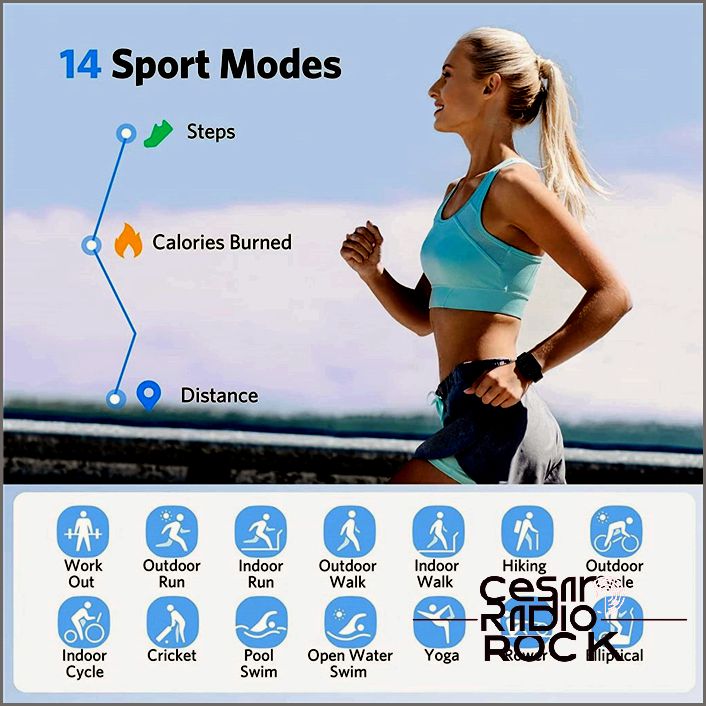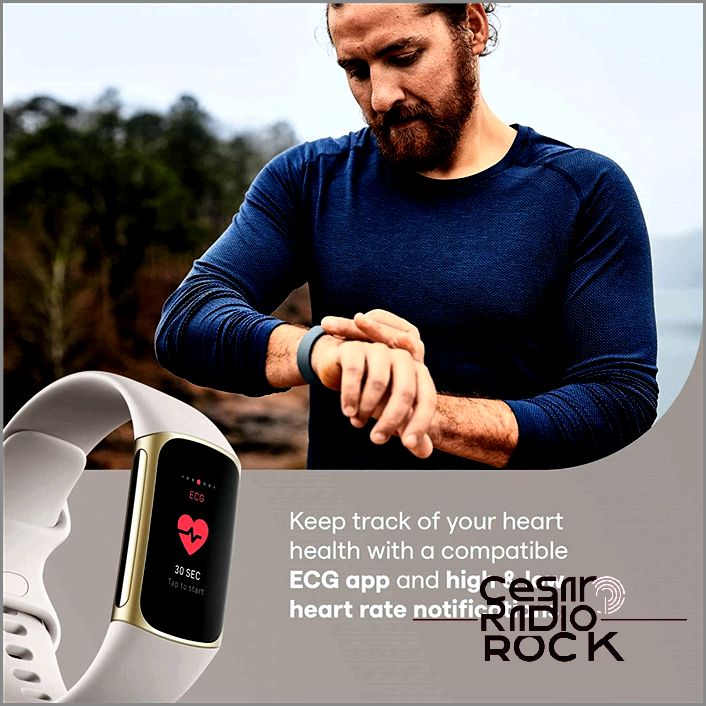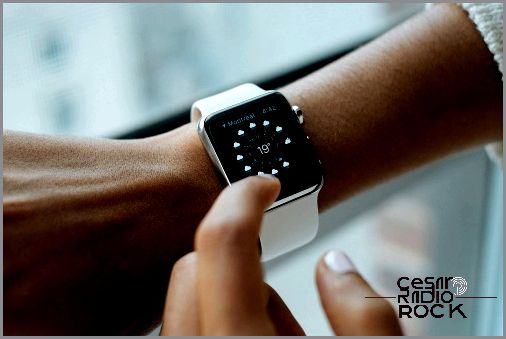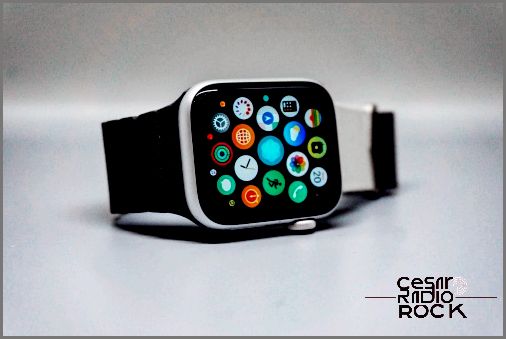How Does a Fitness Tracker Measure the Calories You Burn?
Working out and staying fit has become a big part of our lives, and fitness trackers have become a popular tool to help us achieve our goals. But have you ever wondered how these devices actually calculate the calories you burn during your workouts?
Let’s dive into the nitty-gritty and unveil the mystery behind the calorie-counting capability of fitness trackers.
When it comes to tracking calories, fitness trackers use a combination of sensors and algorithms to estimate the energy expenditure of your activities. These devices usually have an accelerometer, which detects your movement and translates it into data that the tracker can interpret.
By measuring the acceleration of your movements, the fitness tracker can infer the amount of energy you’re expending. For example, if you’re running, the accelerometer senses the impact of each step and calculates the calories burned based on the distance covered and your body weight.
But it’s not just the accelerometer. Fitness trackers also incorporate heart rate monitors to gather even more valuable information. By measuring your heart rate, these devices can assess the intensity of your activity and provide a more accurate estimate of your calorie burn.
The algorithms within the fitness tracker take into account various factors, such as your age, gender, weight, and height, to fine-tune the calculations. These algorithms combine the data from the sensors and heart rate monitor to provide a personalized estimate of your energy expenditure.
It’s important to keep in mind that while fitness trackers can be great tools for tracking your progress and motivating you to stay active, they’re not always 100% accurate when it comes to counting calories. Factors like individual differences in metabolism and the specific type of activity can affect the accuracy of the estimates.
Nevertheless, fitness trackers provide a helpful guide to keep you on track and give you a general idea of how many calories you’re burning during your workouts. They serve as a constant reminder of your fitness goals and can inspire you to push yourself a little harder.
So, next time you’re sporting your fitness tracker and breaking a sweat, remember that it’s a smart device using advanced technology to monitor your movements and estimate the calories you’re torching. It’s like having your very own personal trainer on your wrist!
Embrace the power of your fitness tracker, let it guide you on your fitness journey, and keep striving towards a healthier, fitter you. You’ve got this!

You don’t have to be a professional athlete to understand the benefits of using a fitness tracker. Whether you’re aiming to increase your daily activity or lose weight, a dependable fitness tracker can be an incredibly useful tool.
Almost all modern fitness trackers can show you the number of calories you’ve burned throughout the day or in a single workout session. But you might be curious about how they actually do that and the technology that powers this feature.
More importantly, we all want to know just how accurate these measurements are and whether we can trust them as reliable metrics.
So, What Exactly is a Calorie?

A few decades back, nobody really knew what calories were and why they mattered. Nowadays, though, you can find calorie information on restaurant menus, bags of chips, and cereal boxes, among other common food items.
Let me tell you simply, a calorie is a unit of energy. It doesn’t tell us anything about the type of nutrient or its quality, just the energy it provides from any food source.
I’m sure you’ve heard countless times that to lose weight, you need to burn more calories than you consume. But even with all the fancy technology we have, it’s still not that easy to measure how much energy you’re using overall.
The fitness industry is worth a whopping 100 billion dollars, and fitness trackers play a huge role. They have revolutionized the way we approach fitness by allowing us to keep track of different metrics, including calories burned. Figuring out how many calories you burn isn’t a simple task and involves multiple processes.

Monitoring Your Heart Rate and Oxygen Levels
When it comes to measuring how hard you’re working during exercise, your heart rate is a key factor. It shows how much effort you’re putting into a particular activity. That’s why fitness tracker companies have added heart rate monitors to their devices.

Hey there! Let me break it down for you. These monitors I’m talking about use fancy technology called pulse oximetry or photoplethysmography to keep an eye on how much oxygen is in your blood. It’s pretty cool – they shine a light through your skin, and sensors pick up on any changes in the color of your blood. See, blood absorbs light differently depending on how much oxygen it has, and each time your heart beats, it affects how much light is bounced back. The device then figures out approximately how much oxygen is in your blood and calculates your heart rate. Some of those high-tech fitness trackers even use two different light wavelengths and have fancy noise-canceling tech to make sure they give accurate readings.
But here’s the thing – those heart rate monitors in fitness trackers aren’t perfect. And get this – your heart rate can go up for all sorts of reasons! Like when you’re laughing or feeling scared or anxious. So, to give you more accurate data, fitness trackers also come with other types of sensors that focus on different stuff.
Here’s a breakdown of some of those sensors:
First up, we’ve got the 3-Axis Accelerometer. It’s like the OG of fitness tracker sensors – pretty much every tracker has it. This little guy measures how you move forward and backward and is called a 3-Axis Accelerometer because it can also tell how you’re tilting and which way you’re facing. Without this sensor, your fitness tracker can’t count your steps, which is pretty important.
Next, we’ve got the Gyroscope. This sensor measures both rotation and orientation and helps track how fast you’re moving. When it’s used alongside a 3-Axis Accelerometer, it gives you a complete picture of all your movements. It’s also handy for things like navigation, so it knows whether you’re hiking outside or walking on a treadmill.
Now, let’s talk about the Temperature Sensor. This one’s a big player when it comes to keeping track of the calories you’re burning. It reads your body temperature, and when it goes up, it means your workout is more intense. And intense workouts mean more calories burned!
Another important sensor is the Bioimpedance Sensor. Now, don’t freak out – it doesn’t mean your fitness tracker is shocking you. It just measures the resistance of your skin to a tiny electric current, which helps accurately measure your heart rate. When used with pulse oximetry, this sensor keeps tabs on how your heart rate goes up and down.
Last but not least, we’ve got the Gesture Sensor. This nifty sensor can track the motion of your wrist. It’s useful because it can figure out when you start doing a specific fitness activity. So, when you’re out there crushing it, your wearable can tell you how many calories you’ve burned based on when you started that activity.

Other Factors That Affect the Calories I Burn
Even though my fitness tracker can accurately detect my exercise session and monitor my heart rate, it still can’t tell me exactly how many calories I’ve burned. The manufacturers know this, so they rely on other factors to provide more precise data.
When I buy a fitness tracker, the first thing I need to do is set it up, usually through a mobile app made for that purpose.
Usually, the app will ask me for information like my age, gender, weight, and activity level. They usually give me three or four options, ranging from not active at all to exercising several times a week.
The accuracy of this information is crucial because it helps my fitness tracker give me a more realistic idea of how many calories I’ve burned.
However, how many calories I burn depends on other factors that fitness tracking apps don’t usually ask for. For example, my body composition plays a significant role.
If I have more muscle mass, I’m more likely to burn more calories. How much I sleep and if I eat enough are also essential parts of the equation.
The hormonal and environmental factors, as well as my overall physical health, are even more challenging to take into account, and sometimes the trackers overlook them.
Understanding Purposeful Movement
One of the most crucial aspects of fitness trackers and their ability to measure calories burned is understanding the concept of purposeful movement.
Modern fitness trackers are great at measuring intentional or purposeful walking or lifting. But they struggle to track less “normal” activities.
For example, when it comes to walking, they can easily recognize when I’m hiking but may struggle to count my steps if I’m just moving around my bedroom.
Age also plays a part because children move differently than the elderly, so the trackers may not be as accurate for them.
In short, a fitness tracker is designed to detect a workout at the gym, but it may not capture every daily activity.
However, many fitness experts suggest that staying active throughout the day is more important for overall energy expenditure and weight loss than occasional fitness workouts.

How Accurate Are Fitness Trackers Really?
After an intense workout or a long walk, you may turn to your fitness tracker to check how many calories you’ve burned.
If you only consider this information as one piece of data, the exact number on the screen may not matter much.
However, if you use the calories burned to calculate a caloric deficit and determine how many calories you have left for the day, accuracy becomes important.
Fitness tracker brands have not revealed the scientific basis behind their algorithms, so we don’t know all the factors they rely on to measure calories burned. Some trackers are more accurate than others, but all of them can display incorrect data at times.
Scientific research has also examined the accuracy of fitness trackers. A study from Stanford University of Medicine in 2017 found that even the most accurate devices can be off by 27%, while less accurate ones can be off by over 90%.
Another study from Ghent University in Belgium discovered that fitness trackers often lack real-time feedback, which is essential for accurate data.
However, it’s important to note that these studies are from 2017 and 2018, and fitness tracker technology is constantly evolving. Innovations prioritize improved accuracy, so more research is needed.
Lastly, the accuracy of the data you input also affects the results. When entering information into your fitness tracker, it’s crucial to provide your exact weight, height, and activity level.
If your weight changes, make sure to update it so your fitness tracker can calculate calories burned with greater precision.
Should You Rely on a Fitness Tracker for Calories Burned?
While the quality of your fitness tracker is significant, in general, you should view the calories burned as an estimate rather than completely accurate information. Your fitness tracker can be incredibly helpful as you work on your fitness goals.
However, since it can’t track every movement or consider every health factor, it estimates the calories you’ve burned. Sometimes, the number is perfectly accurate, but other times it can be significantly off.
What Is the Most Reliable Fitness Tracker for Calories Burned?
Apple, Garmin, Fitbit, and Samsung have been prominent players in the fitness tracker market for years. They offer wearables with different features and price ranges. Other brands may emerge over time, spurring healthy competition and driving innovation.
Choosing the right brand depends on your specific needs. Researching the types of sensors they use and examining studies conducted on specific devices can provide valuable insights.
Calories Burned Is an Elusive Metric
Some individuals obsess over every calorie consumed or burned, which can lead to unnecessary stress.
Perfectly measuring the number of calories burned per exercise session or throughout the day is impossible, but fitness trackers make it more tangible and provide a close estimate.
How have your experiences with fitness trackers been? Which device do you believe is the most accurate for calories burned? Share your thoughts in the comments below.
